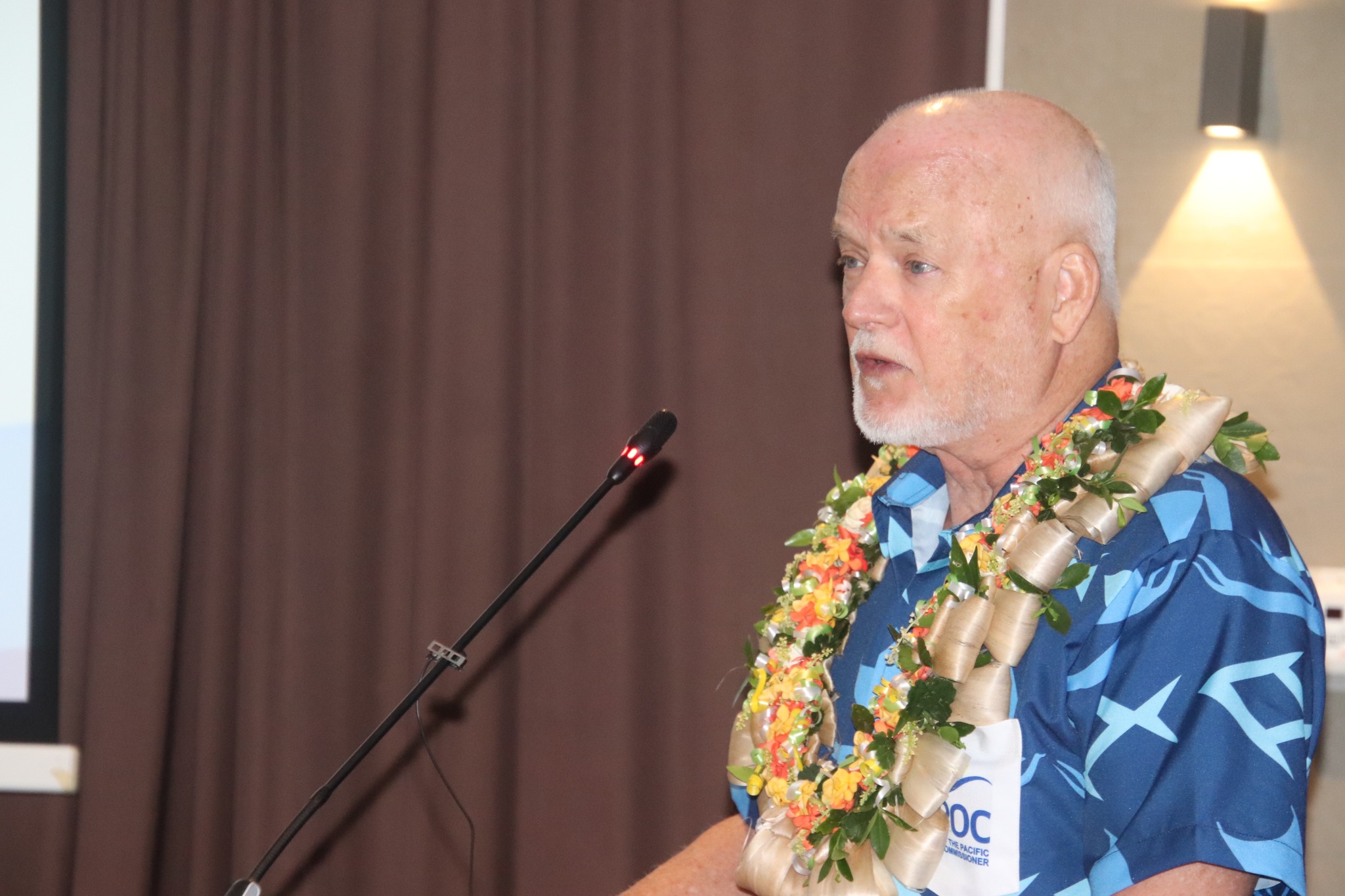By Samantha Magick
The United Nations Secretary-General’s Special Envoy for the Ocean says while great strides have been made towards reaching the Sustainable Development Goal (SDG14) on sustainable oceans management and conservation, the focus now needs to be on ratification and implementation.
Speaking at the opening of a Pacific Regional Ocean Policy and Governance Dialogue this morning, Fiji’s Peter Thomson, who has long served as a diplomat for Fiji, says “all of these advances have been arrived at after sacrifices from many sides, but they all exist for the common good.”
However he emphasised that “none of them are anything but good intentions, until they are ratified back at national level, so that they can be brought into force at an international level. Therefore the catch-cry for us all to take home…is, “Ratify, ratify, implement, implement!”
Thomson cites amongst recent advances on ocean governance; the movement to ban harmful fisheries subsides at the World Trade Organisation, ongoing negotiations on a global Plastic Pollution Treaty, and (slower) progress on controlling Illegal, Unreported and Unregulated Fishing (IUU).
“Control of IUU Fishing is making slower progress, but with every new signature of FAO’s Port States Measure Agreement, we come one step closer to control. The conclusion of the High Seas Treaty (BBNJ) was a huge step forward for better governance of the ocean. And then at the CBD COP in Montreal last December, the protection of ocean ecosystems was given a major boost, through universal agreement under the Global Biodiversity Framework, to protect 30% of the planet by 2030,” he said.
Thomson notes that the development of National Ocean Policies and Marine Spatial Plans are “to attain the balance envisaged by SDG14 between conservation and sustainable use, with intergenerational justice being observed as a guiding star.”
However these efforts, and the evolution of a sustainable blue economy, needs financing.
Thomson says the ‘needle is moving’ in this regard, but that, “We do not want millions or billions of dollars to flow to the Sustainable Blue Economy, we want trillions of dollars.”
He says trillions is required to decarbonise the global shipping fleet and ports, to invest in offshore energy, to invest in sustainable aquaculture and farming the ocean, and to undertake scientific research of the ocean.”
The dialogue continues in Nadi this week.
SOURCE: ISLANDS BUSINESS/PACNEWS













